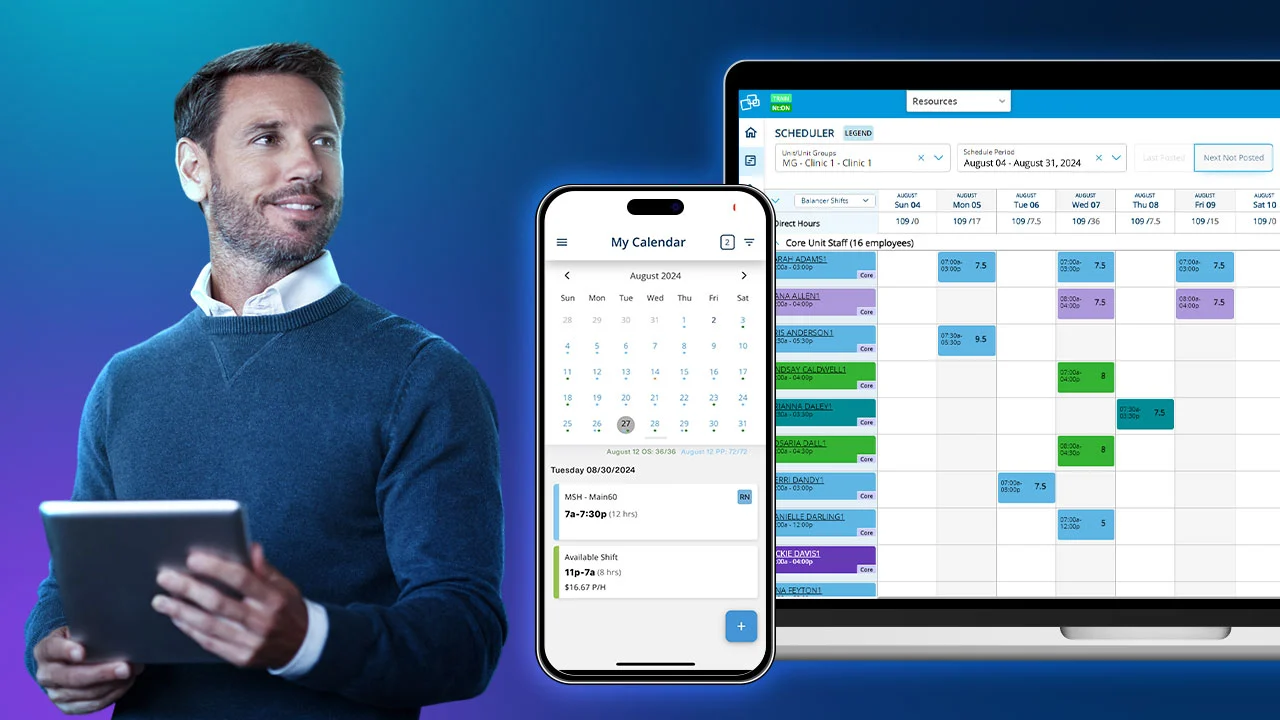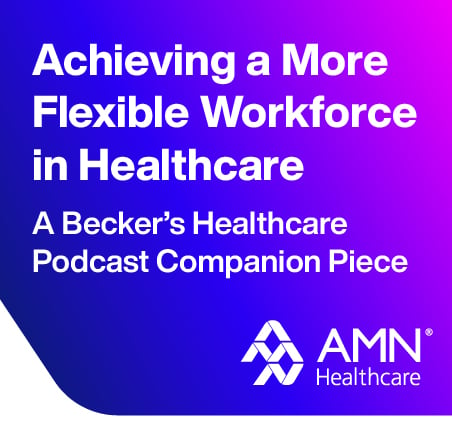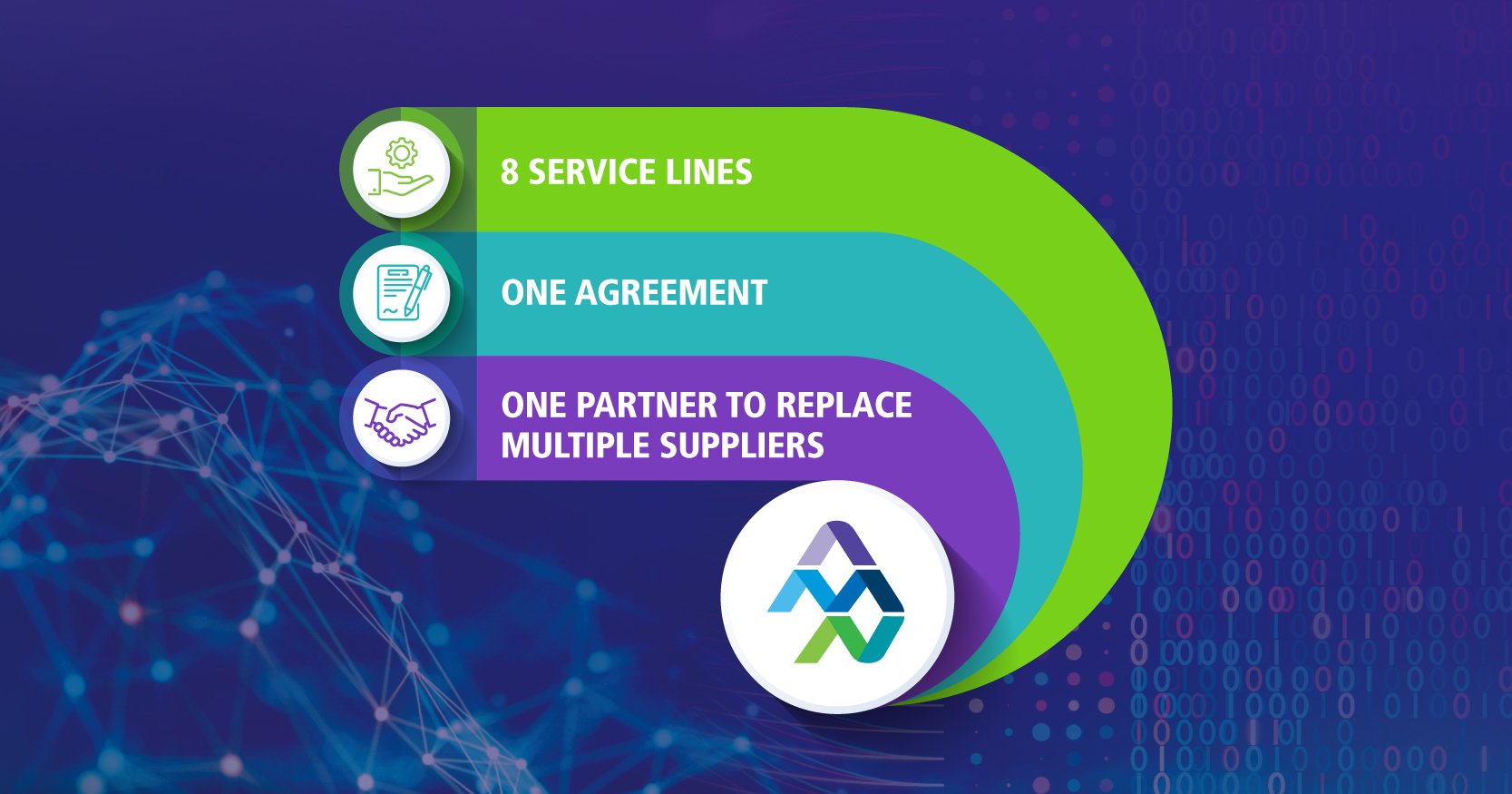
The Difference Between MSP and VMS and How They Work Together in Healthcare
Healthcare organizations are continuously seeking ways to optimize operations, improve patient care, and manage costs. Two crucial components that play a significant role in achieving these goals are Managed Services Providers (MSPs) and Vendor Management Systems (VMS). The final article in our three-part series explains the difference between these two and how they work together.
Understanding MSPs and VMS
At their core, both MSPs and VMS are designed to streamline workforce management, yet they serve distinct functions.
An MSP is an external partner that manages an organization’s contingent workforce program. This involves handling everything from sourcing and hiring to managing suppliers and ensuring compliance. The MSP acts as a strategic partner, offering expertise in crafting a sourcing strategy, leveraging program services, and utilizing technology to enhance workforce management.

A VMS is a software solution that facilitates the management of a contingent workforce. It provides a technology platform to streamline processes such as requisition, time and expense tracking, and analytics. While an MSP delivers hands-on management and strategy, a VMS provides the technological infrastructure to effectively execute that strategy.
The Three Core Components of an MSP: Sourcing Strategy, Program Services, and Technology
Sourcing Strategy
A sourcing strategy is crucial and should cater to the unique needs of the healthcare organization. It involves determining the best approach to engage with suppliers, whether through a vendor-neutral model, a master supplier approach, or using elements of both. A vendor-neutral strategy allows for competitive bidding among suppliers, ensuring quality and cost-effectiveness. Meanwhile, a master supplier model consolidates sourcing with a primary vendor, offering greater control and consistency. An MSP can tailor these strategies to align with the unique needs of healthcare facilities, ensuring the right balance between cost, quality, and compliance.
Program Services
Effective program services encompass managing the contingent workforce lifecycle, including compliance, risk management, and supplier performance. An MSP provides comprehensive program services that include account management, supplier performance monitoring, and compliance checks, ensuring that healthcare organizations maintain high standards while reducing administrative burdens.
Technology
The integration of technology via a VMS is essential for managing complex workforce needs. A VMS provides transparency and control over the workforce, offering tools for tracking time and attendance, managing invoices, and generating reports. In healthcare, where precision and efficiency are crucial, a VMS enhances decision-making by providing actionable insights into workforce dynamics.
The Connection Between MSP and VMS in Healthcare
The collaboration between MSP and VMS amplifies the benefits of each component. For health systems, this integration means improved efficiency, reduced costs, and enhanced patient care. By utilizing an MSP to develop and implement a strategic sourcing plan and program services, healthcare facilities can focus on core operations while ensuring they have access to the best talent available.

The VMS complements this by providing the necessary technological support to efficiently execute the MSP's strategies. It ensures that staffing requirements are met, compliance is maintained, and costs are controlled. This partnership allows healthcare providers to optimize their workforce management processes, leading to a more agile and responsive organization.
The Role of a Strategic Partner
Healthcare organizations can get maximum benefit from MSP and VMS integration by engaging a strategic partner who understands the intricacies of both systems. A strategic partner can assist in implementing these solutions, providing expert guidance and ongoing management to ensure alignment with organizational goals. They offer insights into market trends, supplier performance, and regulatory changes, allowing healthcare organizations to adapt swiftly and maintain a competitive edge.
The difference between an MSP and a VMS lies in their roles—strategy and management versus technology and execution. Their combined power offers a comprehensive solution to workforce management challenges. By leveraging these tools and the expertise of a strategic partner, healthcare providers can achieve enhanced operational efficiency, cost savings, and ultimately, improved patient care.
Latest News
Reducing the Need for Contingent Labor by Leveraging Technology: Geisinger's Playbook for Transforming the Workforce
Learn how top systems like Geisinger reduced their reliance on contingent labor by embracing new technology, advanced analytics and real-time workforce tools.
Webinar: Understanding Turnover: Data-Driven Strategies for Healthcare Staffing Stability
Discover how healthcare leaders are overcoming workforce hurdles in this recorded webinar featuring experts from AMN Healthcare and Renown Health.
Scheduling for Maximum Efficiency: A Comparison of 4, 6, and 8-Week Schedule Periods
Optimizing workforce management is crucial for delivering high-quality patient care while
Enhanced Workforce Planning with Real-Time Insights
Workforce planning is a balancing act—juggling operational demands, financial targets, and the need for actionable insights.
Smart Square Named 2025 Best in KLAS for Nurse and Staff Scheduling
AMN Healthcare, the leader and innovator in total talent solutions for healthcare organizations, has been recognized with the 2025 Best in KLAS Scheduling: Nurse & Staff award for its industry
Understanding Turnover: A Study of Staffing and the Correlation to Turnover
By focusing on key staffing metrics like cancellations, overtime, and core staff floating, you can uncover actionable insights to transform your workforce strategy and retain top talent.
Revolutionize Your Locums Staffing with ShiftWise Flex
ShiftWise Flex is a cloud-based Vendor Management System (VMS) that offers comprehensive capabilities to manage healthcare professionals, including physicians, nurses, and allied health workers,
Optimize Staffing with Smart Square's Data-Driven Insights
Unlock the power of data with Smart Square's advanced reporting abilities. Making informed decisions is key to optimizing staffing and improving overall efficiency











